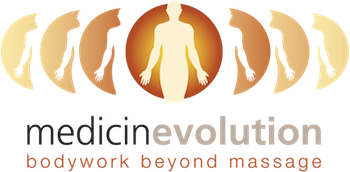Functional movement therapy is a specialized approach that focuses on optimizing athletic performance and promoting efficient recovery. By addressing movement patterns and imbalances in athletes, this therapy aims to improve fundamental movements essential for sports performance. It targets areas such as flexion, step, and tibial tuberosity to enhance functional mobility and stability. Through tailored exercises and corrective techniques, functional movement therapy helps athletes maximize their overall performance potential while reducing the risk of injuries. Whether you’re a professional athlete or a weekend warrior, incorporating functional movement therapy into your training regimen can have a significant impact on your athletic abilities and post-workout recovery.
Exploring Functional Movement Screening for Athletes
Identifying Limitations and Asymmetries
Functional movement screening is a valuable tool in enhancing athletic performance and recovery. By assessing an athlete’s movement patterns, it helps identify limitations and asymmetries that may hinder their overall performance. Through a series of tests, such as the deep squat test, mobility, stability, and neuromuscular control are evaluated.
Assessing Mobility, Stability, and Neuromuscular Control
The screening process involves various tests that assess different aspects of functional mobility. These tests evaluate an athlete’s ability to move through fundamental movements with proper form and control. By examining their range of motion, stability, and coordination during these movements, areas of weakness or dysfunction can be identified.
Insights for Improved Performance
Functional movement screening provides valuable insights into an athlete’s physical capabilities and areas that need improvement. By pinpointing specific limitations or asymmetries in their movement patterns, coaches and trainers can tailor training programs to address these weaknesses effectively. This targeted approach allows athletes to work on developing better movement mechanics, which ultimately enhances their athletic performance.
Incorporating functional movement screening into an athlete’s training regimen can also help prevent injuries by identifying potential risk factors early on. By addressing any imbalances or dysfunctions before they become problematic, athletes can reduce the likelihood of sustaining injuries during training or competition.
Benefits of Functional Movement Patterns for Performance
Functional movement patterns play a crucial role in enhancing athletic performance and aiding in recovery. By incorporating these patterns into training programs, athletes can experience improved efficiency, power, agility, coordination, and body awareness.
One of the key benefits of functional movement patterns is their ability to improve efficiency in athletes. These patterns focus on movements that mimic real-life activities and sports-specific motions. By training the body to perform these movements efficiently, athletes can optimize their performance on the field or court.
In addition to efficiency, functional movement patterns also enhance power and agility. These patterns involve multi-joint movements that engage multiple muscle groups simultaneously. This helps athletes generate more force and power through their movements, leading to greater speed and explosiveness. Improved agility allows athletes to change direction quickly and maintain balance during dynamic movements.
Furthermore, incorporating functional movement patterns into training programs enhances coordination and body awareness. These patterns require precise control over movement sequences, promoting better proprioception (the sense of where our bodies are in space) and kinesthetic awareness (the ability to feel the position and movement of our bodies). This heightened body awareness translates into improved sports-specific movements such as throwing, jumping, or cutting.
Overall, functional movement therapy offers numerous benefits for athletes looking to enhance their performance and recover from injuries. By focusing on fundamental movement patterns that mimic real-life activities, athletes can improve efficiency, power, agility, coordination, and body awareness – all essential elements for success in sports.
Role of Physical Therapy in Athletic Performance Enhancement
Injury Prevention and Rehabilitation
Physical therapy plays a crucial role in enhancing athletic performance through injury prevention and rehabilitation. Sports physical therapy focuses on addressing musculoskeletal imbalances and promoting optimal function, helping athletes stay healthy and perform at their best.
Techniques Used by Physical Therapists
Physical therapists utilize various techniques to help athletes improve their performance and recover from injuries. These techniques may include manual therapy, therapeutic exercises, stretching, and strengthening exercises. By targeting specific areas of the body, physical therapists can address any imbalances or weaknesses that may hinder an athlete’s performance.
Addressing Musculoskeletal Imbalances
One of the key aspects of physical therapy is identifying and addressing musculoskeletal imbalances. These imbalances can lead to compensatory movements or poor biomechanics, increasing the risk of injury and hindering athletic performance. Physical therapists work closely with athletes to assess their movement patterns, identify any imbalances, and develop personalized treatment plans to correct these issues.

Integrating Nutritional Support with Functional Movement Therapy
Proper nutrition plays a crucial role in supporting optimal athletic performance and recovery.Functional movement therapy is often combined with nutritional support to ensure athletes have the energy and nutrients they need to excel.
Integrating nutritional support with functional movement therapy allows athletes to tailor their nutrition plans according to their individual needs. This personalized approach helps them reach their performance goals more effectively.
Functional medicine practitioners work closely with athletes to develop comprehensive nutrition plans that address specific dietary requirements. These plans may include supplementation, ensuring athletes receive essential vitamins, minerals, and fatty acids necessary for peak performance.
By incorporating proper nutrition into their training regimen, athletes can enhance their overall physical well-being. Nutritional support not only provides the body with the fuel it needs but also aids in muscle recovery and repair after intense workouts or competitions.
For example, a diet rich in protein can help repair damaged muscle tissue, while carbohydrates provide energy for sustained performance. Including healthy fats like omega-3 fatty acids can reduce inflammation and promote joint health, minimizing the risk of injuries.
Importance of Mobility and Joint Health in Athletic Performance
Mobility and Joint Health: Key Factors for Athletic Performance
Mobility and joint health play a crucial role in maximizing athletic performance. Athletes rely on their bodies to perform at their best, and poor mobility can significantly limit their range of motion, affecting technique and power output.
When athletes have restricted mobility, it becomes harder for them to execute movements efficiently. For example, limited hip mobility can hinder an athlete’s ability to generate power during explosive movements like jumping or sprinting. Similarly, restricted ankle mobility can affect stability and balance, increasing the risk of injuries.
The Impact of Poor Mobility on Technique and Power Output
Restricted joint mobility not only affects an athlete’s technique but also their overall performance. When athletes cannot move through a full range of motion, they may compensate by using incorrect movement patterns or relying on other muscle groups to make up for the lack of mobility in one area. This compensation can lead to inefficient movement patterns that reduce power output.
Enhancing Mobility through Targeted Exercises and Therapies
Fortunately, athletes can improve their mobility and maintain healthy joints through targeted exercises and therapies. Functional movement therapy focuses on addressing specific limitations in joint mobility while simultaneously improving overall movement patterns.
By incorporating exercises that target specific areas such as hips, ankles, and knees into their training routines, athletes can enhance their flexibility, stability, and range of motion. Closed kinetic chain dorsiflexion exercises for ankle mobility or hip-opening stretches are just a couple of examples that can help improve joint function.
In addition to exercise-based interventions, therapies such as myofascial release techniques or manual therapy from qualified practitioners can also be beneficial in restoring optimal joint health.
Improving mobility not only enhances athletic performance but also plays a vital role in injury prevention. By maintaining healthy joints through functional movement therapy approaches, athletes can minimize the risk of injuries associated with restricted mobility.
Addressing Muscular Imbalances and Recovery Through Therapy
Decreased Performance and Increased Injury Risk
Muscular imbalances can have a significant impact on an athlete’s performance and increase the risk of injuries. When certain muscle groups are overused or underdeveloped, it can lead to limitations in movement patterns and decreased overall performance.
Corrective Exercises and Manual Therapy
Therapy techniques such as corrective exercises and manual therapy play a crucial role in addressing these muscular imbalances and promoting recovery. Corrective exercises focus on strengthening weak muscles while stretching tight ones to restore balance within the body. Manual therapy, which includes techniques like massage or joint mobilization, helps release tension, alleviate muscle soreness, and improve range of motion.
Optimizing Performance Potential
By addressing muscular imbalances through therapy, athletes can optimize their performance potential. For example, if an athlete has a weak core or unstable hips, it can affect their ability to generate power during movements like squatting or jumping. Through targeted therapy exercises that strengthen the core and stabilize the hips, athletes can enhance their performance in these movements.
Therapy not only helps with current imbalances but also plays a vital role in preventing future injuries. By identifying areas of weakness or poor alignment that may contribute to injury risk, therapists can develop treatment plans tailored to address those specific issues. This proactive approach helps athletes build resilience against potential injuries by improving strength, flexibility, and overall movement mechanics.
Enhancing Neuromuscular Coordination for Athletic Excellence
Neuromuscular coordination plays a vital role in an athlete’s performance. It involves the communication between the nervous system and muscles, allowing for precise movements and optimal athletic potential. Functional movement therapy focuses on improving this coordination, leading to enhanced control, accuracy, and overall athletic excellence.
By targeting the neuromuscular system, functional movement therapy helps athletes improve their motor control and agility. Through specific exercises and activities tailored to their respective sports, athletes can enhance their ability to move efficiently and effectively. This type of training also strengthens the kinetic chain, which refers to the interconnectedness of muscles, joints, and other body parts involved in movement.
One of the key benefits of enhancing neuromuscular coordination is improved mental focus during sports performance. When an athlete’s nervous system is functioning optimally, they can better coordinate their movements, react quickly to changes in the game or competition, and make split-second decisions with precision. This heightened level of focus can greatly impact an athlete’s scoring or timing in various sports.
Furthermore, functional movement therapy aids in injury prevention by addressing muscle imbalances that may lead to overuse injuries or inefficient movement patterns. By strengthening weak muscles and correcting faulty movement mechanics, athletes can reduce their risk of injury during training or competition.
Conclusion on Optimizing Athletic Performance with Functional Movement Therapy
In conclusion, functional movement therapy offers a holistic approach to enhancing athletic performance and promoting recovery. By addressing muscular imbalances, improving neuromuscular coordination, and prioritizing mobility and joint health, athletes can optimize their physical capabilities and reduce the risk of injuries. Moreover, integrating functional movement patterns into training routines can lead to increased power output, agility, and overall athletic excellence.
To unlock your full potential as an athlete, consider incorporating functional movement therapy into your training regimen. Consult with a qualified physical therapist who specializes in this area to develop a personalized plan tailored to your specific needs and goals. Remember, investing in your body’s foundation through functional movement therapy is an investment in your long-term athletic success. So take action today and elevate your performance to new heights.

Embracing Functional Movement Therapy for Injury Recovery: Your Journey to Enhanced Mobility with MedicinEvolution!
Are you facing challenges in your athletic endeavors due to a sports injury, battling discomfort, and restricted movement? Look no further than MedicinEvolution for a solution. Here, the principles of Functional Movement Therapy are meticulously employed to address your sports-related injuries, paving the way for a more effective and holistic recovery. Say farewell to the limitations brought on by muscle imbalances, overuse, and repetitive sports actions—as MedicinEvolution delves deep into the underlying causes of your injury, fostering a profound healing journey. Their adept techniques promise a significant shift away from the pain and mobility issues that have been impacting your sports performance.
If you’re dealing with ongoing discomfort, stiffness, or the exasperating constraints of a sports injury, their tailored Functional Movement Therapy is crafted to cater to the unique demands of your situation. Don’t allow setbacks from injuries to dictate your sports narrative—seize control and book your appointment with MedicinEvolution now! Step into the world of Functional Movement Therapy and commence a journey toward a more dynamic, pain-free lifestyle. Your body, along with your sporting goals, will thank you!






0 Comments